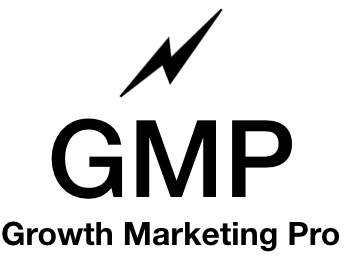- How to Grow a SaaS (Software) Business FAST - February 10, 2025
- 6 Advanced SEO Tips to Dominate the Search Rankings in 2025: Informed by Our Biggest Clients - January 17, 2025
- 7 Advanced Tips for Companies Spending $1M+ on Google Ads - December 10, 2024
The 17 Most Important Questions to Ask Marketing Candidates
Hiring a marketer is only getting more complicated. Like hiring for any other positions, choosing a marketer for your team is a critical business decision. The person you entrust your marketing to plays a much heftier role in your business’s success.
Because marketing encompasses so many components, it can be difficult to understand which skill sets to prioritize, which gaps should be filled first, and how you can tap into unique skills and experience to maximize your growth.
Before you extend a job offer, the answers to these 17 most important questions can help you determine if you’re making a savvy decision, or one you’ll regret:
Table of Contents
What’s Their Specialty?
There’s content marketing, social media marketing, search engine marketing, email marketing, affiliate marketing, influencer marketing, webinar marketing, traditional marketing, marketing consultants, strategic marketing planners, marketing directors…
Finding the right marketing personnel isn’t a straightforward process. It takes a clear understanding of the marketing disciplines each candidate is experienced in and knowing how those skills will play into your current and future ecosystems.
Are you hoping to hire a marketing generalist that knows a little about a lot of different topics? Most businesses start here because they recognize a variety of gaps they want to fill and only have the budget to run lean. While this mentality solves one problem, it could create additional ones that sabotage your marketing plan.
Generalists tend to be jacks of all trades, but masters of none. If you have specific marketing goals and techniques, you’re better off finding someone skilled in those particular disciplines.
Generalists can be useful for executing marketing tasks that don’t require a great deal of experience. But you should consider the benefits of hiring someone skilled in a particular area and can give it 100% of their focus.
Are They Creative?
If your current marketing isn’t getting great results, the last thing you want is to hire a marketer that’s only going to continue doing what you’re already doing.
Fresh ideas and approaches are critical to expanding your marketing results. Don’t be afraid to ask your candidates how they might approach your marketing strategy. Ask them what’s the first thing they’d do if hired, how they find inspiration, and what they would do to get out of a marketing rut.
Can They Write?
Being able to craft persuasive, effective copy is a skill every good marketer should have. For starters, it can save you a lot of time and money by having an in-house writer who knows your brand and audience.
But more importantly, it attests to their ability to communicate information and ideas. You can tell a lot about a person from the way they write, including their organization, attention to detail, and creativity. At some point during the hiring process, consider giving each candidate a surprise writing assignment and see what they can do.
Are They Curious?
Though marketing is an ever-evolving landscape, it’s all too easy to get stuck in a rut of “we’ve always done it this way” or “why reinvent the wheel?”
Hiring a marketer that’s curious and innovative ensures you won’t be limited to inside-the-box thinking. You want someone who is willing to test new ideas to expand your results. You want someone who’s never finished learning and will continue to look for ways to iterate and improve your strategy.
The mechanics of marketing are teachable, but curiosity is a trait that must come from within. Candidates that love to dig a little deeper should definitely make it to your shortlist.
What Do They Know About Your Company and Product?
Making a hiring decision comes easier when you have someone who’s already familiar with your company and product. Because they already have some familiarity with what you do and who you serve, they’re a step ahead of unfamiliar candidates and can hit the ground running sooner.
Even better if they’re a fan of your products. Because they’ve vetted your products for themselves, they have inside information as to what makes you special. They have an innate desire to help others discover you. They have a genuine interest in your success.
And perhaps most importantly, it also gives you a greater chance of holding onto them. That’s hard to pass up.
What Do They Know About Your Industry?
Even if someone has never heard of your company before, they may know a thing or two about your industry. Consider these types of candidates more valuable than others (at least in the preliminary interviews) because they probably already have a lot of the knowledge needed to give you a competitive edge.
This means they may have connections they can leverage for your benefit. They won’t need as much training and onboarding to hit the ground running. They may know a few things about your target audience and can use that to your advantage.
If they used to work for a competitor, you’ll have an inside look at what exactly you’re up against that you might not be aware of.
Do They Prefer to Work in Teams or Alone?
Even if you only have one person marketing your business, marketing activities almost always require some form of collaboration and teamwork. Some people just don’t work well with others and prefer to do everything on their own. But it’s essential to your strategy to find someone who can share ideas, work with others to establish and meet deadlines, and rely on others to do certain tasks to complete a whole project.
What’s Their Legal Knowledge for Marketing Purposes?
Marketing is riddled with rules and regulations, such as copyright infringements and the CAN-SPAM act. Depending on your audience and the type of marketing you’re doing, you’ll want to make sure your marketing efforts won’t land you in hot water.
Test your candidate’s knowledge on various marketing principles, ethical practices, and legal requirements. You should be able to feel confident they won’t do anything that could thwart your success or result in a fine.
How Do They Plan and Prioritize?
Whether you have a one-person marketing team or ten people working on marketing tasks, knowing how to plan and prioritize marketing activities can determine your ultimate success.
Some marketing activities can be planned months in advance. Others may arise as opportunities present themselves, with little to no notice. Whoever you hire should be able to plan in advance, but remain flexible enough to take advantage of new opportunities that come along.
Marketers are bombarded by constant deadlines and changing timelines. They need to know how to delegate when necessary. They must avoid tunnel vision to keep their eyes on the big picture.
Discover what techniques they use to plan their calendars and prioritize events in tasks. See how they identify opportunities and what they do to switch gears on projects. Do they give themselves realistic deadlines or do they put things off until the last minute? Are they methodical in their approach or take each case off-book?
The best marketers are effective planners. Look for signs they can stay ahead of the curve so nothing falls through the cracks.
What’s Their Experience with Budgeting?
A marketing budget is one of the easiest funds to drain, and it’s all the more important for your marketing team to protect it. Whoever you hire for marketing should have some knowledge as to how much marketing activities should cost, how to budget for them appropriately, and also how to calculate the ROI on their spending.
The best hiring hint? Don’t hire someone who’s bad at math.
Can They Delegate Effectively?
No marketing person can truly do it all if you want to maximize your impact. There will be times when you’ll need to outsource some activities that your current marketing team lacks the skills or time for.
Knowing when to delegate is important in meeting deadlines, staying on or under budget, and getting the best ROI. Savvy marketers will know what resources are available to them, when delegation is required, and who to delegate to, be it an internal employee, freelancer, or external agency.
How Well Do They Understand the Sales Landscape?
We’re at a point where the majority of the sales process takes place long before a person reaches out to a sales rep. Data shows that about 67% of the buyer’s journey is complete before they contact a company for more information. What’s more, about 70% of consumers expect some form of self-service so that reaching out is a last resort.
Because of this decreased reliance on sales departments, it’s becoming increasingly important for marketers to up their game to attract qualified leads. But for marketing to be effective, it’s important to have an understanding of sales processes so that marketers can tailor their efforts for the right results.
Studies show that salespeople waste the most time on unqualified leads. This is largely in part to sales and marketing departments not being aligned to achieve the same goals. Marketing needs to have a thorough understanding of how your salespeople sell and who they sell to so they can tailor their efforts to fit the bill, not the other way around.
It’s even more helpful to hire a marketing candidate that has real sales experience. No one understands the pain points and struggles of salespeople like fellow or former salespeople, and having that in-depth experience can help marketers recognize how to better prepare their campaigns for success.
How Do They Collect, Interpret, and Leverage Data?
Weak marketers focus on activities, while strong marketers focus on results. You can usually distinguish between the two by identifying how they determine success.
For example, some marketers may spend most of their time creating brochures, research, branding, press releases, and networking events.
While these things can be effective in their own way, they don’t offer clear ways to measure their impact. Rather, they’re passive activities that amount to little more than busy work. They may or may not have an effect on creating community rapport, making impressions, and building a better brand image.
Other marketers spend their time on measurable, quantifiable activities. Placing ads on social media, sending emails with calls-to-action, hosting webinars, and asking for referrals are all things that can be counted and measured. Marketers that are concerned with metrics are likely to make better use of their time and deliver tangible results to prove it.
However, data can be open to interpretation, and not every marketer will glean the same information from the same sets of information. Some may focus on useless vanity metrics, while others want to move the needles that result in real sales.
Find out how your candidate measures their success, the different data points they look for, how they relate sets of data to other data, and how they use their insights to make informed decisions for future activities.
How Do They Track Results?
Your marketing is never a one-and-done deal. Hiring a marketer isn’t the green light for overnight success. Rather, marketing takes conscientious, ongoing effort to develop and sustain the best results.
Much of this insight depends on how marketers are tracking their progress. It’s not enough to look at the individual results of campaigns, but rather how those results play out over time, how they impact the results of other campaigns, and how your success grows or declines over time.
Again, this circles back to ensuring you have the right metrics in place to measure your success. While some marketers may believe that Likes and Shares on social media make a campaign successful, others marketers will feel that the number of sales from the campaign is more indicative of success.
Marketers should continue to look at campaigns over time to see if their efforts are getting better, worse, or staying about the same.
Do They Fit the Company Culture?
Whether you’re hiring a remote marketer or adding someone to your in-house team, culture fit is everything. Not only does hiring for culture impact your internal operations, it also ensures your person matches your brand and company image.
They’re more likely to make the same types of decisions you would. They can project your brand in the best possible way. They won’t upset the company balance or bring down the team.
Plus, culturally fit employees tend to fit in better and perform better. If you neglect the culture aspect, regardless of a person’s experience, you’ll likely be filling that position again sooner than you think.
What Results Do They Guarantee?
This question is a bit of a trick because no one can ever really guarantee marketing results. If your candidate says they can, you should probably keep looking.
The smartest answer here is for a marketing candidate to show you results from a campaign they did for another client that saw wild success. They should be able to take you through their steps, explaining what they did in detail, and have before-and-after numbers to back up their claims.
Of course, not all marketers may have this information readily available. But do your best to find out what kind of success they’ve delivered in the past and how they achieved it so you can see if their techniques match what your company needs.
What Questions Do They Ask During the Interview?
Interviews are a two-way street, and what your candidates ask could be more telling than the questions they answer.
Some candidates are more focused on their own success rather than the company’s. They’ll ask things about raises, opportunities to move up in the company, job stability, and other things that don’t necessarily pertain to marketing. Granted, these are typical interview questions, and the answers matter to every job seeker. But they do little to show off their marketing knowledge and create a final strong impression that could potentially seal the deal.
However, if a candidate starts asking about typical ROI, current marketing and advertising strategies, target audiences, annual budgets, and short-term marketing goals, they probably know what they’re doing.
Bonus points if they ask about current company challenges, your company’s sales cycle, and the tools you use in your marketing strategy. These higher level questions are clear indicators the candidate has plenty of experience and probably the marketing chops to prove it.
Asking the right questions also shows they have a true interest in the job, the company, and making a positive impact, and you shouldn’t write them off so quickly.
How to Make the Right Call When Hiring a Marketer
In today’s modern job market, it’s not uncommon for candidates to do a trial run or short test to see their skills in action. If you feel a candidate excels in some areas but lacks in others, tailor your test to see how their weaknesses might affect their job performance.
Marketing is comprised of myriad moving pieces, so your hiring decision shouldn’t hinge on just one of them. You can make a better hiring decision by considering the big picture along with its components to ensure you get the ROI for your investment.
For more tips and insights on growth marketing, head back to our blog and explore our resources.
Author: Benjamin Shepardson is the founder of NoStop Writing Service. With an extensive career in digital marketing and web development, Ben’s knowledge of the industry has enabled small businesses to scale and grow through well-crafted content and strategy.





Thanks for sharing that a marketer who is curious will be able to think outside the box. As you said, this means that there will be new ideas that they will be testing to ensure that the results will be exemplary. With that in mind, I will make sure that I will check their personality before hiring them. I just need their help now that I have saved up enough money to start my dream business which is an online shop, so I really have to market it effectively online to get customers.